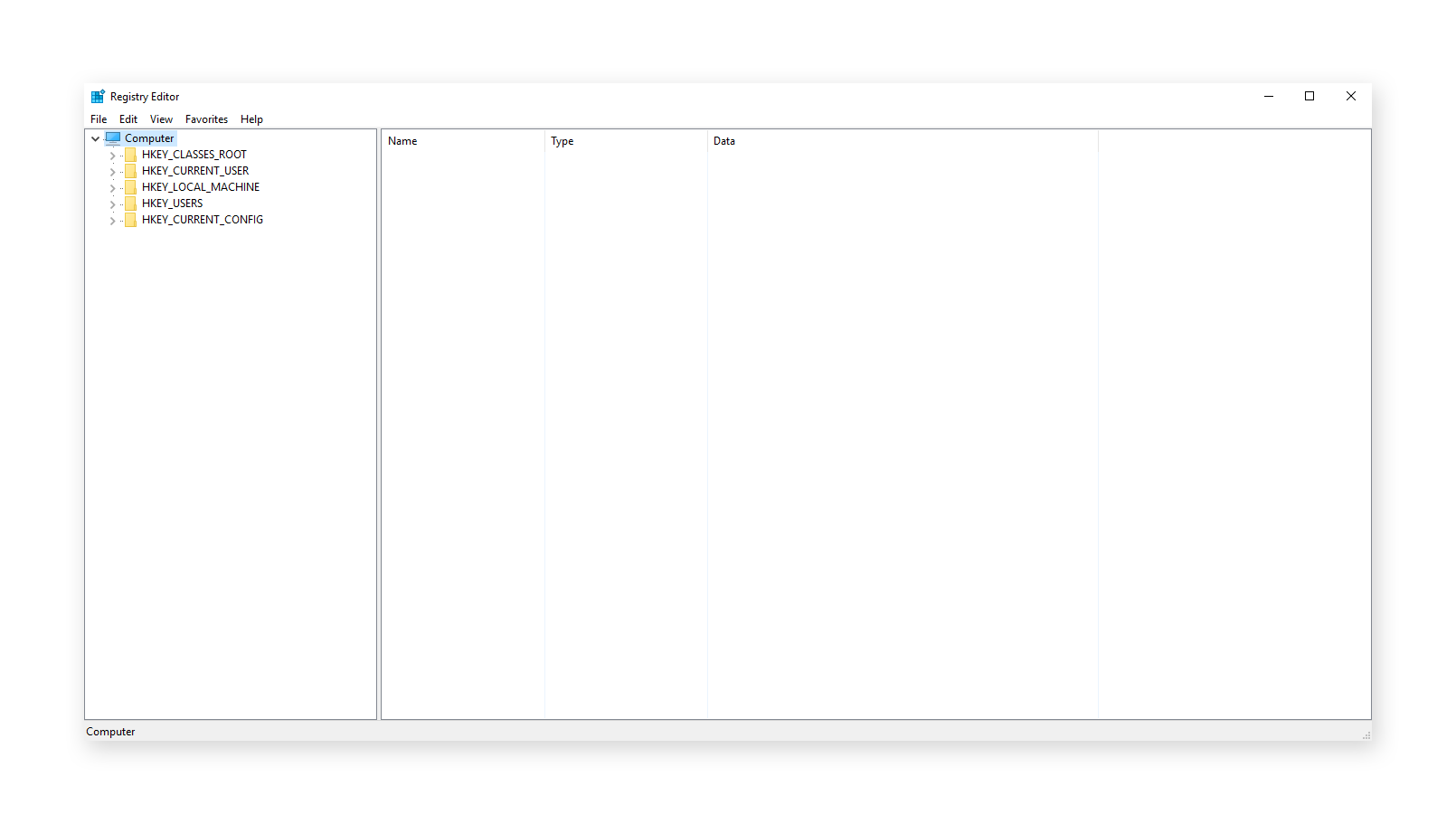How Do You Know if Your Computer Has a Trojan Horse Virus
Trojans survive past going unnoticed. They may sit quietly in your computer, collecting data or setting up holes in your security, or they may only take over your computer and lock yous out.
What is a Trojan?
Basically, a Trojan is a malicious plan that pretends to be harmless in order to pull a fast one on people into downloading it.
Trojans have the distinction of existence one of the first pieces of malware to always be. Their proper noun was coined all the manner back in a US Air Forcefulness written report from 1974, which listed all the hypothetical ways a estimator system could be compromised. It wouldn't stay in the hypothetical realm for long.
A mere ane year afterwards, the first "real" Trojan (although there is some fence if it counts) was discovered in the wild: a program called ANIMAL-PERVADE. This piece of code disguised itself as a game to go users to download it, so secretly ushered in a self-replicating virus. A uncomplicated beast-themed guessing game, it made backups of itself on every drive the current user could access, taking keen pains not to harm or overwrite anything in the process. Information technology was harmless and easy to prepare, merely since it did not disclose the virus information technology independent, it qualified every bit a Trojan.
The Trojans that followed were non and then innocent, and they quickly became one of the nigh popular kinds of malware attacks. This is especially truthful today, where "social engineering" (a type of threat that involves manipulating and lying over social channels) is one of the chief distribution methods for malware of all types.
What exercise Trojans exercise?
Considering Trojans are so versatile and tin go unnoticed, their popularity has exploded, making them the malware of choice for many online criminals.
Some of the common actions that Trojans have are:
Creating backdoors: Trojans typically make changes to your security system so that other malware or even a hacker can go far. This is usually the showtime step in creating a botnet.

Spying: Some Trojans are essentially spyware designed to wait until you access your online accounts or enter your credit menu details, and and so send your passwords and other data back to their master.
 Turning your computer into a zombie: Sometimes, a hacker isn't interested in you, only just wants to use your computer as a slave in a network under their control.
Turning your computer into a zombie: Sometimes, a hacker isn't interested in you, only just wants to use your computer as a slave in a network under their control.
 Sending costly SMS messages: Fifty-fifty smartphones go Trojans, and a common mode for criminals to make coin is by making your phone send plush SMS messages to premium numbers.
Sending costly SMS messages: Fifty-fifty smartphones go Trojans, and a common mode for criminals to make coin is by making your phone send plush SMS messages to premium numbers.
What does a Trojan await similar?
Well, that'southward just it: Trojans can look like just about anything. The computer game you downloaded from a strange website. The "free" MP3 by that band you secretly like. Fifty-fifty an advertisement might try to install something on your computer.
Some Trojans are specifically designed to trick yous into using them. They can utilise misleading language or attempt to convince you they are a legitimate app. This is why it's and then of import to picket out for unsafe websites and never download things carelessly.
How can I tell if I'm infected with a Trojan?
Unlike many kinds of malware, which make no pretense of being safety or friendly, Trojans tin be a flake harder to place at a glance.
Bank check your installed programs
Trojans, as nosotros've discussed, volition often open up a backdoor to download other malware. So it can be worth your time to check your installed programs for annihilation yous don't recollect installing. PC users can go to add or remove programs, and those with Macs tin utilize the Finder feature. If yous see anything you don't recognize, it either means you lot take a Trojan, or a legitimate download installed an boosted plan behind your dorsum. In either case, it'south good to get rid of it.
Check your startup software
Not all Trojans will show up in your add together/remove program list. For a more comprehensive list (on Windows), hold the windows fundamental and press R to bring upward the run carte. From that menu, type "regedit" and click enter, and yous'll see a screen like this:
Click HKEY_CURRENT_USER, then expand the SOFTWARE folder. It volition show yous all the software you have installed — all of it. Google anything you don't recognize, and if you're suspicious, yous can delete it.
Consider your performance
These days, nearly malware is smart enough to avert crowding your desktop with pop-upwardly ads as they did in yesteryear, but that doesn't hateful your computing performance won't take a hit. In fact, with the rise of cryptomining, your figurer is liable to run even slower if information technology's got a nasty infection.
So if you notice things running slowly, either at startup or just during normal utilise, utilize Ctrl-Alt-Delete to pull up your task manager. Click on the Processes tab (it should be open past default) and meet which programs are using up your CPU and Retentivity. Some software, similar high-end games, will typically eat up nearly of your ability. Most apps shouldn't — then if you notice some weird software really chewing up your processing power, Google it and meet if it'south actually a Trojan. If it is, remove it, and if it isn't, yous should probably remove it anyway.
Go an antivirus
It should exist fairly obvious at this signal, but the all-time way to identify malware — and to prevent infections in the first place — is with a stiff, reliable antivirus like AVG AntiVirus FREE. Information technology'south worth noting that Trojans are typically better than most malware at staying hidden because they put more than effort into hunkering down and staying out of sight. Past comparing, viruses use their energy to self-proliferate, making them more visible.
And then if y'all're worried that a stubborn Trojan is hiding on your device, you'll want to run a boot-time scan, which takes place as a computer is starting upwards —leaving malware nowhere to hide. That'll do the fox, and every bit luck would have it, AVG Costless AntiVirus has a boot-time scan characteristic.
How can I avoid a Trojan infection?
The first and well-nigh obvious footstep is to go an antivirus, which volition catch and stop most Trojans dead in their tracks. Simply equally the human element is the weakest link in the cybersecurity chain, you lot'll take to do your office equally well if you want to stay completely safe.
Be wary of downloads
The beginning thing you'll want to exercise is be cautious most annihilation yous download online, and be aware of phishing attempts. Malware has been known to sneak onto the most secure marketplaces and past the virtually stringent anti-spam, and while it's e'er inevitably caught, it'due south normally able to snare a few people beforehand. So to avert opening the gates and inviting doom the way Trojans practice in the myth, await for the following warning signs:
-
Is it too proficient to be true?
-
Does it attempt to sound personal but lacks personal identifiers?
-
Did it come out of nowhere?
-
Was it sent from a public domain email address? (@yahoo.com, @gmail.com, etc)
-
Does it have an element of urgency?
-
Is anything odd or misspelled?
-
Are the links non HTTPS? Are they spelled wrong? Or do they take strange characters?
-
Does the file being offered take a weird extension? (eastward.thou., a "document" being a ZIP file)
-
Are you lot downloading from a third party or third-party site?
-
Are there reviews? Are the practiced reviews suspicious or practise they all sound besides similar?
-
If it'south an app, was information technology released recently? Is it an app yous accept reason to believe would be effectually longer? (For example, was a banking app "released" just a few hours agone?)
If whatever of these are true, then there's a good chance a hacker is trying to phish you. But that'southward not the simply way you can become infected with a Trojan.
Avoid pirated files and media
Despite what you lot might have heard, "piracy" is by no ways the chief manner hackers distribute malware. But that'due south non to say that pirated software is shut to prophylactic. Someday you download a file from a stranger (or fifty-fifty a friend) from a file-sharing site, there'south a good chance it'll be malware, or have malware smuggled alongside information technology.
How do I go rid of a Trojan?
If you lot identified a Trojan using the methods detailed earlier, you can get rid of it manually past deleting the file or application. That won't guarantee that information technology'southward gone (it could exist by way of leftover files), but information technology's a start. In fact, many types of malicious programs will attempt to put upward a fight — read our guide on how to remove malware for more than details.
If you lot can't find the Trojan but still doubtable you lot're infected, recovering an old backup of your PC will get rid of information technology. Failing that, a manufacturing plant reset is a good last-ditch effort. But of course, nothing beats an antivirus for speed and convenience. You can perform a normal scan, or if necessary, a boot-fourth dimension browse to discover stubborn Trojans. Just make sure you have a robust antivirus like AVG AntiVirus Complimentary to practice the muddy work for yous.
Source: https://www.avg.com/en/signal/what-is-a-trojan

0 Response to "How Do You Know if Your Computer Has a Trojan Horse Virus"
Publicar un comentario